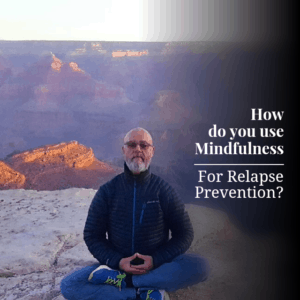 If you are like the millions of Americans that are struggling with behavior or substance misuses, addictions, compulsions, then you are also fighting a battle to regain control of your life. You are going through an ongoing battle, day by day to make a fresh start, and stay on a path that avoids a relapse into a cycle of compulsive, addictive behaviors. It can be a difficult challenge
If you are like the millions of Americans that are struggling with behavior or substance misuses, addictions, compulsions, then you are also fighting a battle to regain control of your life. You are going through an ongoing battle, day by day to make a fresh start, and stay on a path that avoids a relapse into a cycle of compulsive, addictive behaviors. It can be a difficult challenge
Mindfulness is rooted in a 5,000-year-old mind science that offers effective skillful tools to maintain sobriety. Ongoing practice helps individuals develop mental muscles and create chemicals that are similar to those that led to addiction, but without the dangerous and destructive side effects.
What Are Mindfulness Practices?
The practice is perceived as simple, just sitting and being still. It involves focusing your awareness on experiencing the present moment – tagging sensory input as well as internal thoughts and feelings – without judgment. It is both formal and informal. When you sit, walk, or lie down for longer periods, focusing awareness it is formal. When you are out and about, breathing, being and doing it is informal. Doing the formal practice is often called Meditation. You can do anything that helps you focus, to be here now, without shame, blame, guilt or criticism and it is mindfulness practice.
All mindfulness practices bring you a sense of relaxation and peace, and they are free. You can take them anywhere and practice everywhere. They help you to lift, shift and manage an increasingly challenging world.

